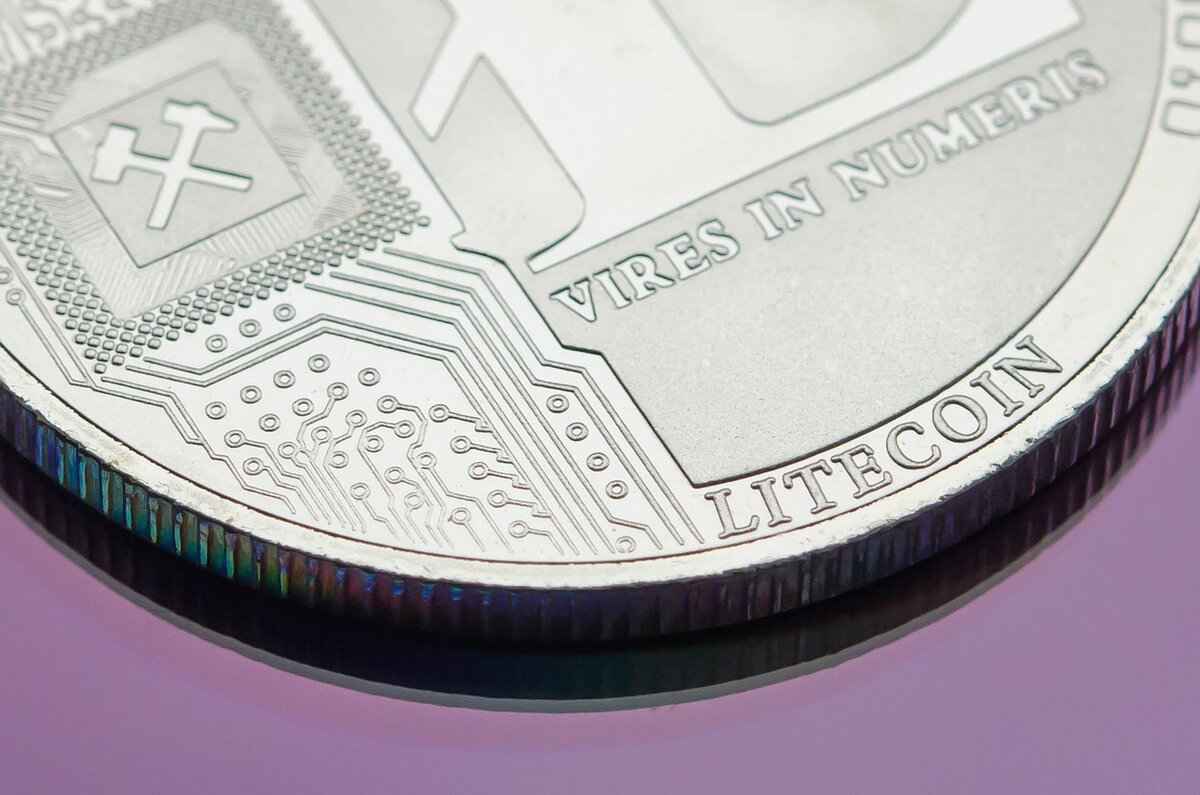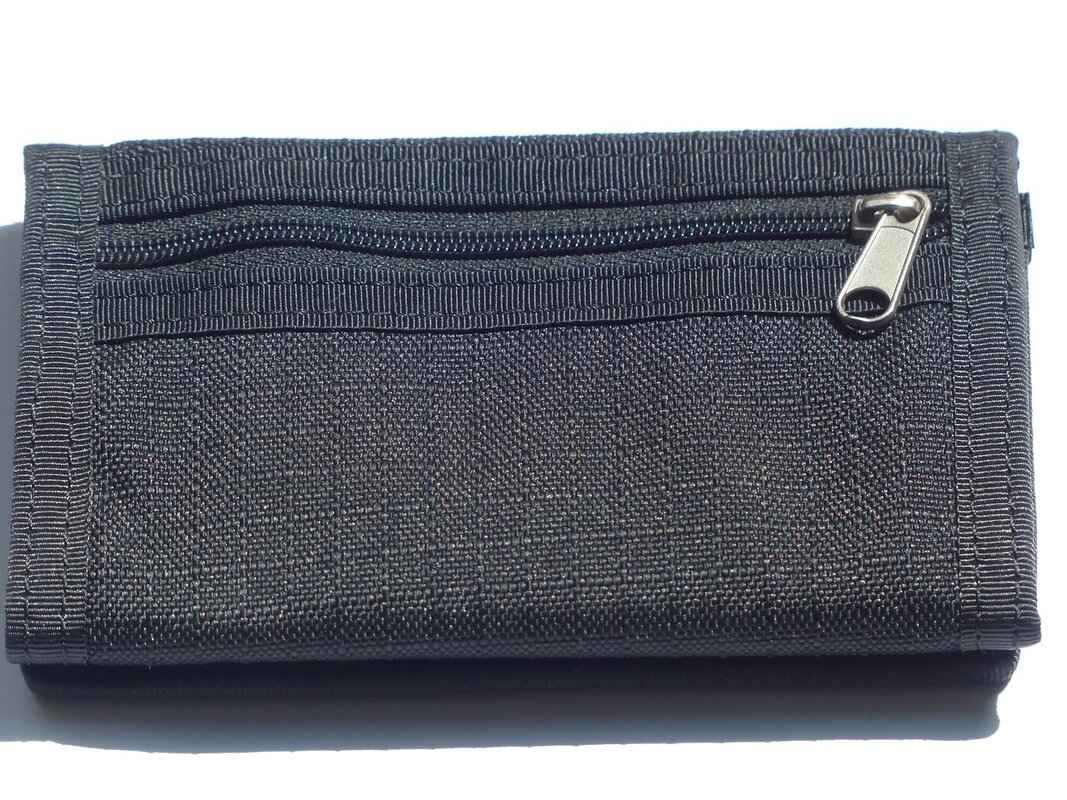This article explores the various types of crypto wallets, their security features, and best practices for safeguarding digital assets. Learn how to choose the right wallet for your needs.
What Are Crypto Wallets?
Understanding crypto wallets is essential for anyone interested in the world of digital currencies. A crypto wallet is a digital tool that allows users to store, send, and receive cryptocurrencies. Rather than holding the actual currency, wallets store the public and private keys needed to access your digital assets on the blockchain. The wallet’s software interacts with various blockchain networks, enabling transactions and tracking balances. It’s crucial to select a wallet that aligns with your needs, whether you prioritize security, convenience, or accessibility.
Types of Crypto Wallets
There are several types of crypto wallets, each offering distinct features and levels of security:
- Hot Wallets: These are connected to the internet, making them easy to use for frequent transactions.
- Cold Wallets: These are offline storage solutions that provide enhanced security for long-term asset storage.
- Hardware Wallets: Physical devices that securely store private keys offline.
- Software Wallets: Applications installed on computers or mobile devices for easy access to cryptocurrencies.
Choosing the Right Wallet for Your Needs
Selecting the appropriate wallet is critical for effective management of your digital assets. Consider factors such as:
- Security Features: Look for wallets with encryption, two-factor authentication, and backup options.
- User Interface: A user-friendly interface can enhance your experience, especially if you’re new to crypto.
- Compatibility: Ensure the wallet supports the cryptocurrencies you plan to use.
Best Practices for Securing Your Crypto Wallet
Implementing best practices can significantly enhance the security of your crypto wallet:
- Regular Software Updates: Keeping your wallet software updated is vital for protecting against vulnerabilities.
- Using Strong Passwords: A robust password is your first line of defense. Consider using a password manager to generate and store complex passwords.
- Two-Factor Authentication: Enable 2FA for an added layer of security.
Recovering Your Wallet
In case you lose access to your wallet, knowing recovery options is essential. Most wallets provide a seed phrase or recovery key, which allows you to restore your account. Store these securely, preferably offline. If you encounter issues, reach out to wallet support services for assistance.
Future Trends in Crypto Wallet Security
As the cryptocurrency landscape evolves, so do security measures. Emerging trends include:
- Multi-Signature Wallets: Require multiple approvals for transactions, enhancing security for both individuals and organizations.
- Integration with Decentralized Finance (DeFi): Wallets are adapting to seamlessly integrate with DeFi platforms, which may present new security challenges.

What Are Crypto Wallets?
Understanding the fundamental concept of crypto wallets is crucial for anyone looking to manage digital currencies. In the rapidly evolving world of cryptocurrency, wallets serve as the gateway to your digital assets. They are not physical wallets but rather software programs that store your public and private keys, allowing you to send, receive, and manage your cryptocurrencies securely.
At their core, crypto wallets function similarly to traditional wallets, but with some significant differences. While traditional wallets hold physical cash, crypto wallets enable you to interact with blockchain networks. They do not store the actual cryptocurrencies; instead, they store the keys that provide access to your funds on the blockchain. This means that when you send or receive cryptocurrency, you are essentially signing transactions with your private key, which is kept secure within your wallet.
There are two main types of wallets: hot wallets and cold wallets. Hot wallets are connected to the internet, making them convenient for everyday transactions. They allow users to quickly access their funds and perform transactions with ease. However, this connectivity also exposes them to potential security risks, such as hacking and phishing attacks.
On the other hand, cold wallets are offline storage solutions that provide enhanced security for long-term asset storage. These wallets are not connected to the internet, making them less vulnerable to cyber threats. Cold wallets come in various forms, including hardware wallets and paper wallets, and are ideal for users looking to store their assets securely over an extended period.
When selecting a crypto wallet, it is essential to consider several factors, including security features, user interface, and compatibility with different cryptocurrencies. A wallet that offers robust security features, such as two-factor authentication and encryption, can significantly reduce the risk of unauthorized access. Additionally, a user-friendly interface can enhance your experience, making it easier to manage your digital assets.
In conclusion, crypto wallets are an indispensable tool for anyone involved in the cryptocurrency ecosystem. They allow users to securely manage their digital assets, facilitating transactions while ensuring the safety of their funds. By understanding the different types of wallets and their functions, users can make informed decisions on how to store and manage their cryptocurrencies effectively.

Types of Crypto Wallets
In the ever-evolving world of cryptocurrency, understanding the different types of crypto wallets is essential for anyone looking to manage their digital assets effectively. Each wallet type offers unique features, security measures, and usability options that cater to various user needs. This section will explore four primary types of crypto wallets: hot wallets, cold wallets, hardware wallets, and software wallets.
- Hot Wallets: These wallets are connected to the internet, making them highly accessible for users who frequently trade or transact. Hot wallets can be further divided into web wallets, mobile wallets, and desktop wallets. They are user-friendly and allow for instant transactions, but they come with increased security risks due to their online nature.
- Cold Wallets: Unlike hot wallets, cold wallets are not connected to the internet, providing a more secure option for storing cryptocurrencies. Cold wallets include paper wallets and hardware wallets. They are ideal for long-term storage of digital assets and are less susceptible to hacking and online threats.
- Hardware Wallets: A type of cold wallet, hardware wallets are physical devices that securely store private keys offline. They offer robust security features, such as encryption and two-factor authentication. Users can access their cryptocurrencies by connecting the hardware wallet to a computer or mobile device when needed, minimizing exposure to online vulnerabilities.
- Software Wallets: Software wallets can be either hot or cold, depending on their connectivity. These wallets are applications that can be downloaded on desktops or mobile devices. They provide a balance between security and convenience, but users must ensure they choose reputable software to avoid potential risks.
When selecting a crypto wallet, it is crucial to consider factors such as security, ease of use, and compatibility with various cryptocurrencies. Understanding the differences between these wallet types will help users make informed decisions that align with their trading habits and security preferences.
In summary, each type of crypto wallet has its advantages and disadvantages, catering to different user needs. Hot wallets are ideal for frequent transactions, while cold wallets provide enhanced security for long-term storage. Hardware wallets offer a physical solution for safeguarding digital assets, and software wallets strike a balance between accessibility and security. Evaluating these options will empower users to choose the right wallet for their cryptocurrency management.
Hot Wallets Explained
Hot wallets are a popular choice among cryptocurrency users due to their convenience and accessibility. These wallets are connected to the internet, allowing users to perform transactions quickly and efficiently. However, this connectivity comes with both advantages and disadvantages that users should be aware of.
Advantages of Hot Wallets
- Ease of Use: Hot wallets are user-friendly and often come with intuitive interfaces, making them suitable for beginners.
- Instant Transactions: Since they are online, transactions can be completed in real-time, which is ideal for trading or making quick purchases.
- Accessibility: Users can access their funds from multiple devices, including smartphones, tablets, and computers, making it easy to manage assets on the go.
Disadvantages of Hot Wallets
- Security Risks: Being online makes hot wallets more vulnerable to hacks and cyberattacks. Users must take extra precautions to secure their assets.
- Dependence on Internet Connectivity: Accessing funds requires a stable internet connection, which can be a limitation in areas with poor connectivity.
- Less Control Over Private Keys: Many hot wallets store private keys on centralized servers, meaning users have less control over their keys compared to cold wallets.
Best Use Cases for Hot Wallets
Hot wallets are best suited for users who engage in frequent transactions. Here are some scenarios where hot wallets excel:
- Active Traders: Traders who buy and sell cryptocurrencies regularly benefit from the quick access and instant transactions that hot wallets provide.
- Everyday Purchases: Users looking to make small purchases with cryptocurrencies, such as buying goods or services, will find hot wallets convenient.
- Testing New Coins: Investors interested in experimenting with new or lesser-known cryptocurrencies can use hot wallets for quick access without committing to long-term storage solutions.
In summary, while hot wallets offer unmatched convenience for frequent transactions, users must remain vigilant about security. By understanding the pros and cons and identifying suitable use cases, individuals can effectively leverage hot wallets to manage their digital assets.
Pros and Cons of Hot Wallets
Hot wallets have become increasingly popular among cryptocurrency users due to their convenience and ease of access. However, as with any financial tool, they come with their own set of advantages and disadvantages. Understanding these can help users make informed decisions about how best to store their digital assets.
Advantages of Hot Wallets
- Accessibility: Hot wallets are connected to the internet, which means users can access their funds anytime and anywhere. This is particularly beneficial for those who frequently trade or need to make quick transactions.
- User-Friendly Interfaces: Most hot wallets offer intuitive designs that cater to both beginners and experienced users. This ease of use encourages more people to engage with cryptocurrencies.
- Integration with Exchanges: Many hot wallets seamlessly integrate with cryptocurrency exchanges, allowing for quick transfers and trades without the need for cumbersome processes.
- Multi-Currency Support: Hot wallets often support a wide range of cryptocurrencies, making it easy for users to manage different assets in one place.
Disadvantages of Hot Wallets
- Security Risks: The primary concern with hot wallets is their vulnerability to hacking. Being online means they can be targeted by cybercriminals, leading to potential loss of funds.
- Less Control Over Private Keys: Many hot wallets are custodial, meaning the wallet provider holds the private keys. This can lead to a lack of control over your assets, which is contrary to the decentralized ethos of cryptocurrencies.
- Dependency on Internet Connection: Since hot wallets are internet-dependent, users may find themselves unable to access their funds during connectivity issues or outages.
- Potential for Phishing Attacks: Users of hot wallets are often targeted by phishing scams, where malicious actors impersonate wallet services to steal sensitive information.
Best Use Cases for Hot Wallets
Despite the drawbacks, hot wallets can be suitable for certain use cases:
- Frequent Traders: For those who actively trade cryptocurrencies, the speed and convenience of hot wallets outweigh the security risks, especially if they keep only a small amount of funds in them.
- New Users: Beginners may find hot wallets to be a user-friendly introduction to managing cryptocurrencies, allowing them to learn the ropes without the complexities of cold storage solutions.
- Daily Transactions: Users who need to make frequent purchases or payments using cryptocurrencies can benefit from the immediate access that hot wallets provide.
In summary, hot wallets offer significant advantages in terms of accessibility and user experience, making them an appealing option for many cryptocurrency users. However, the associated security risks cannot be overlooked. It’s essential for users to weigh these pros and cons carefully and consider their individual needs and circumstances when choosing a wallet for their digital assets.
Popular Hot Wallet Options
In the rapidly evolving world of cryptocurrency, hot wallets have become a popular choice among users for their convenience and accessibility. These wallets are connected to the internet, allowing for quick transactions and easy management of digital assets. This section will explore some of the most widely used hot wallets in the crypto community, highlighting their features, user experiences, and what sets them apart.
- Exodus
Exodus is a user-friendly hot wallet that supports a wide variety of cryptocurrencies. Its intuitive interface makes it ideal for beginners. Users appreciate its built-in exchange feature, which allows for seamless trading between different cryptocurrencies without leaving the app. Additionally, Exodus offers strong security features, including private keys stored locally on the user’s device.
- Trust Wallet
Trust Wallet, owned by Binance, is another popular choice among crypto enthusiasts. It provides users with full control over their private keys and supports a vast array of tokens. Trust Wallet is particularly favored for its integration with decentralized applications (dApps), enabling users to engage in decentralized finance (DeFi) activities directly from the wallet. Its multi-currency support and easy-to-use interface enhance the overall user experience.
- Coinbase Wallet
Coinbase Wallet is distinct from the Coinbase exchange and is designed for users who want to manage their private keys. It offers a secure way to store various cryptocurrencies and NFTs. Users appreciate the wallet’s seamless integration with the Coinbase platform, allowing for easy transfers between the wallet and the exchange. Additionally, Coinbase Wallet features robust security measures, including biometric authentication and recovery phrases.
- MetaMask
MetaMask is primarily known as a browser extension that allows users to interact with the Ethereum blockchain and its ecosystem. It is especially popular among users engaging with decentralized applications and DeFi platforms. MetaMask provides a secure way to manage Ethereum-based tokens and offers a user-friendly interface. Its easy setup and ability to connect to various dApps make it a top choice for many crypto users.
- Atomic Wallet
Atomic Wallet is a decentralized wallet that supports over 500 cryptocurrencies. It allows users to swap assets directly within the wallet without the need for an external exchange. The wallet’s security features include private keys stored on the user’s device and a recovery phrase for backup. Users enjoy the flexibility and control that Atomic Wallet provides, making it a solid choice for both beginners and experienced traders.
These hot wallets offer a range of features and functionalities to cater to different user needs. While they provide convenience and accessibility, it is essential to remain aware of the inherent security risks associated with hot wallets. Users should always implement best practices for securing their digital assets, such as enabling two-factor authentication and regularly updating their wallet software.
Cold Wallets Explained
In the realm of cryptocurrency, cold wallets are essential tools for ensuring the security of your digital assets. Unlike their hot wallet counterparts, which are connected to the internet, cold wallets provide a secure offline storage solution that significantly reduces the risk of hacking and cyber threats.
How Do Cold Wallets Work?
Cold wallets function by keeping your private keys—essential for accessing your cryptocurrencies—completely offline. This means that even if your computer or mobile device is compromised, your assets remain safe. Cold wallets can come in various forms, including hardware wallets and paper wallets. Hardware wallets are physical devices that securely store your keys, while paper wallets involve printing your keys on paper, which must then be stored in a safe location.
- Hardware Wallets: These devices often resemble USB drives and provide a user-friendly interface for managing your cryptocurrencies. They encrypt your private keys and require physical access to the device for transactions.
- Paper Wallets: A more traditional method, paper wallets involve generating your private and public keys and writing them down. While they are immune to online attacks, they can be easily lost or damaged, making secure storage crucial.
Importance of Cold Wallets for Long-Term Asset Storage
For individuals and institutions looking to hold cryptocurrencies for the long term, cold wallets are indispensable. They offer a level of security that is unmatched by hot wallets. Here are several reasons why cold wallets are vital for long-term storage:
- Enhanced Security: By keeping your assets offline, cold wallets eliminate the risk of online hacks, phishing attacks, and malware.
- Control Over Your Assets: With a cold wallet, you have complete control over your private keys, reducing reliance on third-party services.
- Ideal for Long-Term Holdings: If you plan to hold your cryptocurrencies for an extended period, cold wallets are perfect as they are less likely to be accessed frequently.
Moreover, cold wallets are often equipped with recovery options, such as seed phrases, which allow users to restore their wallets in case of loss or damage. This feature adds another layer of security, ensuring that your investments are protected even in unforeseen circumstances.
In summary, cold wallets are a critical component of any cryptocurrency strategy, particularly for those focused on long-term asset preservation. By understanding how they work and recognizing their importance, users can make informed decisions about how to secure their digital currencies.

Choosing the Right Wallet for Your Needs
Selecting the appropriate wallet is essential for managing your digital assets effectively. With the increasing popularity of cryptocurrencies, understanding how to choose the right wallet has never been more crucial. This section will provide comprehensive guidance on evaluating your options based on security, accessibility, and usability.
When it comes to digital wallets, the first step is to understand the different types available. Each wallet type serves a unique purpose and caters to various user needs. For instance, hardware wallets are often recommended for long-term storage due to their enhanced security features. In contrast, hot wallets are ideal for users who frequently trade or transact, as they allow for quick and easy access to funds.
Factors to Consider When Choosing a Wallet
- Security Features: The security of your digital assets should be your top priority. Look for wallets that offer features such as encryption, two-factor authentication, and robust private key management. These features help protect your assets from unauthorized access and potential theft.
- Accessibility: Consider how often you will need to access your wallet. If you plan to make frequent transactions, a hot wallet might be more suitable. However, for long-term storage, a cold wallet would provide enhanced security.
- Usability: The user interface should be intuitive and easy to navigate. A wallet that is difficult to use can lead to mistakes, such as sending funds to the wrong address. Read user reviews and test the wallet yourself to gauge its usability.
Evaluating Wallet Options
Once you have considered the factors above, it’s time to evaluate specific wallet options. Research various wallets available in the market, comparing their features, fees, and user experiences. Some wallets may offer lower fees but lack essential security features, while others may have robust security at a higher cost.
Additionally, check if the wallet supports the specific cryptocurrencies you plan to hold. Not all wallets are compatible with every type of digital asset, so ensure that your chosen wallet accommodates your needs.
Backup and Recovery Options
Another critical aspect to consider is the wallet’s backup and recovery options. In the event of losing access to your wallet, having a reliable recovery method is essential. Look for wallets that provide a seed phrase or recovery key, which can be used to restore access to your funds. Make sure to store this information securely, as anyone with access to it can control your assets.
In conclusion, choosing the right wallet for your needs requires careful consideration of security, accessibility, usability, and recovery options. By understanding these factors and conducting thorough research, you can select a wallet that aligns with your cryptocurrency management goals, ensuring the safety and accessibility of your digital assets.
Factors to Consider
Factors to Consider When Choosing a Crypto WalletWhen selecting a crypto wallet, it is essential to evaluate several critical factors to ensure that your digital assets are secure and accessible. This section will explore the most important aspects to consider, including security features, user interface, compatibility with various cryptocurrencies, and backup options.
- Security Features: The foremost priority in choosing a crypto wallet is security. Look for wallets that offer robust encryption methods, two-factor authentication (2FA), and multi-signature functionalities. These features significantly reduce the risk of unauthorized access. Additionally, consider the wallet’s history regarding hacks or breaches, as this can provide insight into its reliability.
- User Interface: A user-friendly interface is crucial, especially for beginners. The wallet should have an intuitive design that allows users to navigate easily. Look for wallets that offer clear instructions, tutorials, or customer support to assist users in managing their assets. A well-designed interface can enhance the overall experience and make transactions smoother.
- Compatibility with Different Cryptocurrencies: Not all wallets support every cryptocurrency. Before making a choice, ensure that the wallet is compatible with the specific digital currencies you intend to store or trade. Some wallets specialize in major currencies like Bitcoin and Ethereum, while others support a broader range of altcoins. Researching compatibility can save you from future inconveniences.
- Backup Options: A reliable backup system is essential for recovering your assets in case of loss or theft. Most wallets provide recovery phrases or keys that can be used to restore access. Ensure you understand how to securely store these recovery options. Additionally, consider whether the wallet offers features like cloud backup or hardware backup options, which can add an extra layer of security.
By carefully considering these factors, you can make an informed decision that aligns with your needs and preferences. A thorough evaluation will help you choose a wallet that not only secures your assets but also provides a seamless user experience.
Assessing Security Features
When it comes to managing your digital assets, security is not just an option; it is a necessity. Choosing a reliable crypto wallet involves understanding the various security features that can protect your investments from potential threats. In this section, we will explore the essential security features you should look for in a crypto wallet, including encryption, two-factor authentication, and private key management.
- Encryption: One of the most critical security measures is encryption. A wallet that employs strong encryption algorithms ensures that your private keys and transaction data are stored securely. Look for wallets that use advanced encryption standards (AES) to safeguard your information. This means that even if someone gains unauthorized access to your wallet, they won’t be able to decipher the data without the encryption key.
- Two-Factor Authentication (2FA): This feature adds an extra layer of security by requiring two forms of identification before granting access to your wallet. Typically, this involves something you know (like a password) and something you have (like a mobile device). By enabling 2FA, you significantly reduce the risk of unauthorized access, as an attacker would need both elements to compromise your wallet.
- Private Key Management: Your private keys are the keys to your cryptocurrency holdings. A secure wallet should provide a robust private key management system. This includes features such as the ability to generate and store private keys offline, ensuring they are not exposed to online threats. Additionally, some wallets offer hierarchical deterministic (HD) wallets, which generate new keys for each transaction, further enhancing security.
In addition to these primary features, consider the following:
- Backup Options: A reliable wallet should offer easy backup solutions, such as seed phrases or recovery keys. These allow you to restore your wallet in case of device loss or failure.
- Multi-Signature Support: For those managing larger amounts of cryptocurrency, wallets that support multi-signature transactions can enhance security. This requires multiple signatures from different keys to authorize a transaction, making it more difficult for a single compromised key to result in a loss.
- Regular Security Audits: Check if the wallet provider conducts regular security audits and has a transparent history of addressing vulnerabilities. This demonstrates their commitment to maintaining a secure environment for users.
By thoroughly assessing these security features, you can make an informed decision when selecting a crypto wallet. Remember, the safety of your digital assets depends on the security measures implemented by your chosen wallet.

Best Practices for Securing Your Crypto Wallet
As the adoption of cryptocurrencies continues to grow, securing your digital assets has never been more crucial. Implementing best practices can significantly enhance the security of your crypto wallet, thereby protecting your investments from theft and loss. Here are some actionable tips to help users safeguard their digital assets effectively.
- Enable Two-Factor Authentication (2FA): Always activate 2FA for your wallet. This adds an extra layer of security by requiring not only your password but also a second form of verification, such as a code sent to your mobile device.
- Keep Your Software Updated: Regularly update your wallet software to ensure that you have the latest security patches. Outdated software can be vulnerable to attacks, making it essential to stay current.
- Use Strong and Unique Passwords: Create complex passwords that are hard to guess. Avoid using easily accessible personal information, and consider using a password manager to keep track of your credentials.
- Backup Your Wallet: Regularly back up your wallet data, including your private keys and seed phrases. Store these backups in secure locations, such as encrypted USB drives or secure cloud storage.
- Be Aware of Phishing Scams: Always verify the authenticity of websites and emails before entering sensitive information. Phishing scams are prevalent in the crypto space, and being cautious can help you avoid falling victim.
- Consider Using Hardware Wallets: For long-term storage of large amounts of cryptocurrency, hardware wallets provide enhanced security by keeping your private keys offline. This reduces the risk of online hacks.
- Limit Access to Your Wallet: Avoid accessing your wallet on public Wi-Fi networks. Use a secure and private internet connection to minimize the risk of interception.
- Monitor Your Accounts Regularly: Keep an eye on your wallet transactions and balances. Regular monitoring can help you catch any unauthorized transactions early.
By implementing these best practices, you can significantly reduce the risks associated with managing your crypto wallet. Remember that security is an ongoing process, and staying informed about the latest threats and security measures is essential for protecting your digital assets.
Regular Software Updates
In the rapidly evolving world of cryptocurrency, keeping your wallet software up to date is a vital practice that cannot be overlooked. Regular updates are essential for maintaining security and ensuring the integrity of your digital assets. This section will delve into the reasons why these updates are necessary and how they serve to protect against various vulnerabilities.
One of the primary reasons for updating wallet software is to patch security vulnerabilities. Just like any software, crypto wallets can have bugs or weaknesses that malicious actors may exploit. Developers often release updates to fix these issues, and by not updating, users leave themselves open to potential attacks. For example, a wallet that is not updated may be susceptible to phishing attacks, malware, or other forms of cyber threats that can lead to the loss of funds.
Moreover, updates often include new features that enhance the functionality of the wallet. These improvements can range from better user interfaces to additional security measures such as two-factor authentication or biometric logins. By keeping your wallet updated, you not only protect your assets but also gain access to tools that can make managing your cryptocurrencies easier and more efficient.
Another critical aspect of regular updates is the integration of new cryptocurrencies. The cryptocurrency market is continually expanding, with new coins and tokens being introduced regularly. Wallet providers frequently update their software to support these new digital assets, ensuring that users can manage a diverse portfolio without needing to switch wallets.
Additionally, regular updates can improve performance and stability. Older versions of wallet software may become sluggish or unresponsive over time. By updating, users can benefit from improved speed and reliability, which is especially important when conducting transactions that require timely execution.
To ensure that you are always running the latest version of your wallet software, consider enabling automatic updates if the option is available. This feature allows the software to update itself without requiring manual intervention, making it easier for users to maintain security without added effort. However, it is also essential to stay informed about updates and changes made by the wallet provider, as some updates may require user action or adjustments to settings.
In conclusion, the importance of keeping wallet software updated cannot be overstated. Regular updates are crucial for protecting against vulnerabilities, enhancing functionality, and ensuring that users can manage their digital assets effectively. By prioritizing software updates, you take a proactive step in safeguarding your cryptocurrencies and ensuring a smoother, more secure experience in the ever-changing landscape of digital finance.
Using Strong Passwords
A strong password is an essential element of securing your cryptocurrency wallet. It serves as the first line of defense against unauthorized access, making it crucial for protecting your digital assets. This section will delve into the significance of robust passwords and provide practical tips for creating them effectively.
In the digital age, the average user often falls prey to cyber threats due to weak passwords. A study by cybersecurity experts revealed that over 80% of data breaches can be traced back to poor password management. Thus, understanding how to create a strong password is vital for anyone engaged in cryptocurrency transactions.
Characteristics of a Strong Password
- Length: Aim for at least 12-16 characters.
- Complexity: Include a mix of uppercase letters, lowercase letters, numbers, and special characters.
- Avoid Personal Information: Do not use easily accessible information like birthdays, names, or common phrases.
- Unpredictability: Use random words or phrases that do not relate to each other.
Creating a strong password can often feel overwhelming, but using a password manager can simplify the process. These tools not only generate complex passwords for you but also store them securely, so you don’t have to remember each one. This is particularly useful given the number of accounts a typical user manages today.
Tips for Creating Robust Passwords
1. Use a passphrase: Combine random words into a long phrase.2. Change passwords regularly: Aim for every 3-6 months.3. Enable two-factor authentication (2FA): Add an extra layer of security.4. Avoid reusing passwords: Each account should have a unique password.
Furthermore, it’s important to educate yourself about the latest password security trends. For instance, many experts recommend avoiding common substitutions, such as replacing ‘a’ with ‘@’ or ‘s’ with ‘5’, as these are often predictable. Instead, focus on creating entirely unique passwords that cannot be easily guessed.
In summary, a strong password is not just a simple string of characters; it is your first line of defense against potential threats. By following the tips mentioned above and utilizing tools like password managers, you can significantly enhance the security of your cryptocurrency wallet. Always remember, the effort you put into creating a robust password can save you from potential financial loss in the future.

Recovering Your Wallet
In the unfortunate event of losing access to your wallet, understanding recovery options is essential for safeguarding your digital assets. This section will delve into various recovery methods, emphasizing the significance of backing up wallet information to ensure you can regain access when needed.
With the increasing popularity of cryptocurrencies, the risk of losing access to your wallet has become a pressing concern for many users. Losing access can happen due to various reasons, including forgetting passwords, device theft, or software malfunctions. Therefore, having a solid recovery plan is crucial. The first step in this process is to understand the mechanisms available for recovery.
Most crypto wallets provide a seed phrase or recovery key when you create your account. This unique series of words acts as a master key to your wallet. If you lose access, entering this seed phrase can restore your wallet on any compatible platform. It’s vital to store this phrase securely, preferably offline, to prevent unauthorized access.
- Best Practices for Storing Seed Phrases:
- Write it down on paper and keep it in a safe place.
- Consider using a safe deposit box for added security.
- Avoid digital storage options that could be hacked.
If you encounter issues with your wallet, knowing how to contact support can be invaluable. Many wallet providers have dedicated support teams to assist users with recovery. When reaching out to support, ensure you have relevant information ready, such as your wallet address and any details about your account setup.
- Tips for Effective Communication with Support:
- Be clear and concise about the issue you’re facing.
- Provide any necessary information without sharing sensitive data.
- Follow up if you don’t receive a timely response.
In addition to seed phrases, many wallets offer backup options that allow you to export your wallet data. Regularly backing up your wallet information can prevent loss due to device failure or accidental deletion. Ensure that these backups are stored securely and are easily accessible when needed.
- Backup Methods to Consider:
- Export wallet files to an encrypted USB drive.
- Use cloud storage with strong encryption and two-factor authentication.
- Regularly update your backups to include recent transactions.
In summary, losing access to your wallet can be a daunting experience, but understanding recovery options can significantly alleviate the stress associated with it. By utilizing seed phrases, contacting support services, and implementing robust backup strategies, you can ensure that your digital assets remain secure and accessible, even in challenging situations.
Seed Phrases and Recovery Keys
In the realm of cryptocurrency, the security of your digital assets is paramount. One critical aspect of securing your wallet is understanding the role of seed phrases and recovery keys. These components are essential for account recovery and can be the difference between regaining access to your funds or losing them forever.
A seed phrase, also known as a recovery phrase or mnemonic phrase, is a series of words generated by your crypto wallet. This phrase acts as a master key, allowing you to restore your wallet and access your funds in case of device loss or wallet corruption. Typically, a seed phrase consists of 12 to 24 words that are randomly selected from a predefined list.
Recovery keys, on the other hand, are alphanumeric codes that serve a similar purpose. They are often longer and more complex than seed phrases, providing an additional layer of security. While both serve to recover access to your wallet, seed phrases are more commonly used in the crypto community due to their simplicity and ease of use.
When you create a new wallet, the software generates a seed phrase or recovery key, which you must write down and store securely. This phrase is linked to your private keys, which control access to your cryptocurrencies. If you ever lose access to your wallet, you can enter your seed phrase or recovery key into a compatible wallet application to restore your account and regain access to your funds.
- Write It Down: Always write your seed phrase or recovery key on paper. Avoid storing it digitally, as this can expose it to hacking.
- Use a Safe: Store the written phrase in a secure location, such as a safe or a safety deposit box, to protect it from theft or damage.
- Make Copies: Create multiple copies of your seed phrase and store them in different secure locations to ensure redundancy.
- Avoid Sharing: Never share your seed phrase or recovery key with anyone. Treat it like a password, as anyone with access can control your funds.
- Consider Using a Metal Backup: For added durability, consider engraving your seed phrase onto a metal plate, which can withstand fire or water damage.
Many users make critical mistakes when handling their seed phrases or recovery keys. One common error is neglecting to back up the phrase, which can lead to permanent loss of access to funds. Another mistake is storing the phrase in a digital format, such as a screenshot or a note on your phone, which can be hacked or lost. Always prioritize physical storage methods.
Understanding the importance of seed phrases and recovery keys is crucial for anyone involved in cryptocurrency. By following best practices for storing these essential components securely, you can significantly reduce the risk of losing access to your digital assets. Always remember that your seed phrase is the key to your wallet, and safeguarding it is your responsibility.
Contacting Support Services
In the world of cryptocurrency, having access to reliable support services is crucial, especially when it comes to managing your digital assets. If issues arise with your crypto wallet, knowing how to effectively contact wallet support can make a significant difference. This section will guide you through the process of reaching out for assistance, whether you need help with wallet recovery, troubleshooting, or general inquiries.
First and foremost, it is essential to identify the support channels provided by your wallet service. Most reputable wallet providers offer multiple ways to get in touch, including:
- Email Support: This is a common method for contacting support teams. Ensure you provide detailed information about your issue to receive accurate assistance.
- Live Chat: Many services now offer live chat options for immediate support. This can be particularly helpful for urgent matters.
- Phone Support: Some wallets provide a direct phone number for support. This can be beneficial for those who prefer speaking to a representative.
- Help Center/FAQs: Before reaching out, it may be useful to check the wallet’s help center or FAQ section as many common issues are addressed there.
When contacting support, it’s important to be clear and concise in your communication. Here are some tips to ensure you get the help you need:
- Provide Relevant Details: Include your wallet address, the type of wallet you are using, and a thorough description of the issue.
- Document Your Steps: If you have attempted any troubleshooting steps, document these to help the support team understand your situation better.
- Be Patient: Response times can vary, especially during peak hours. Allow some time for the support team to get back to you.
In addition to direct support channels, many wallet providers maintain active communities on social media platforms and forums. Engaging with these communities can provide additional insights and support from other users who might have faced similar issues. Platforms like Reddit, Twitter, and Telegram often have dedicated groups for specific wallets where users share their experiences and solutions.
Moreover, if you encounter persistent issues that are not resolved through official support channels, consider escalating your concerns. Document all communications and gather relevant evidence to present a comprehensive case. This can be especially important if you need to seek assistance from regulatory bodies or consumer protection agencies.
In conclusion, knowing how to effectively contact wallet support is vital for ensuring the security and accessibility of your digital assets. By following the guidelines provided in this section, you can navigate the support process more efficiently and enhance your overall experience in the cryptocurrency space.

Future Trends in Crypto Wallet Security
As the cryptocurrency landscape continues to evolve, so too do the security measures that protect digital assets. The rapid growth of this market has prompted the development of innovative technologies and strategies aimed at enhancing the safety of crypto wallets. This section will delve into some of the most promising trends shaping the future of crypto wallet security.
Multi-Signature Wallets: A New Standard for Security
One of the most significant advancements in crypto wallet security is the adoption of multi-signature wallets. These wallets require multiple signatures from different private keys to authorize a transaction, thereby reducing the risk of unauthorized access. This feature is particularly beneficial for businesses and organizations that manage large amounts of cryptocurrency, as it adds an additional layer of protection against theft.
- Enhanced Security: By requiring multiple approvals, the risk of a single point of failure is minimized.
- Collaboration: Multi-signature wallets facilitate joint control, making them ideal for partnerships.
- Flexibility: Users can customize the number of signatures required based on their security needs.
Integration with Decentralized Finance (DeFi)
The rise of Decentralized Finance (DeFi) is transforming how crypto wallets operate. Many wallets are now being designed to integrate seamlessly with DeFi platforms, allowing users to lend, borrow, and trade assets directly from their wallets. However, this integration also presents new security challenges, as users must be vigilant about the smart contracts they interact with.
- Smart Contract Audits: Ensuring that the code behind DeFi applications is secure is crucial to prevent hacks.
- User Education: Wallet providers are focusing on educating users about potential risks associated with DeFi.
- Insurance Options: Some platforms are beginning to offer insurance for funds held in DeFi protocols.
Biometric Security Measures
Another trend gaining traction is the use of biometric security measures in crypto wallets. Features such as fingerprint scanning, facial recognition, and voice identification are being integrated to provide users with a more secure and convenient way to access their wallets. These biometric methods offer a unique advantage by being difficult to replicate, thus enhancing overall security.
- Convenience: Biometric authentication simplifies the login process for users.
- Fraud Prevention: Biometrics are less susceptible to hacking compared to traditional passwords.
- Adoption Rates: As mobile devices increasingly support biometric features, wallet providers are likely to follow suit.
Artificial Intelligence (AI) in Threat Detection
Artificial Intelligence (AI) is playing a pivotal role in enhancing crypto wallet security. By analyzing patterns and behaviors, AI can help in identifying suspicious activities and potential threats in real-time. This proactive approach allows users to take immediate action to protect their assets.
- Behavioral Analytics: AI can learn users’ typical transaction behaviors and flag anomalies.
- Predictive Analysis: Advanced algorithms can predict potential security breaches before they occur.
- Automated Alerts: Users can receive instant alerts about suspicious activities, enabling swift responses.
In conclusion, the future of crypto wallet security is poised to become more robust and sophisticated. As new technologies emerge, users must remain informed about these trends to ensure their digital assets are adequately protected. By embracing innovations such as multi-signature wallets, DeFi integration, biometric measures, and AI-driven security, individuals and organizations can significantly enhance the security of their cryptocurrency holdings.
Multi-Signature Wallets
Multi-Signature Wallets: Enhancing Security for Digital TransactionsMulti-signature wallets, often referred to as multi-sig wallets, are a revolutionary approach to securing digital assets in the cryptocurrency landscape. Unlike traditional wallets that require a single private key for transaction approval, multi-signature wallets necessitate multiple approvals from different parties before any transaction can be executed. This added layer of security makes them particularly appealing for both individual users and organizations.
- How Do Multi-Signature Wallets Work?
Multi-signature wallets operate on the principle of requiring a predefined number of signatures to authorize a transaction. For instance, in a 2-of-3 multi-signature wallet, three private keys are generated, and any two of these keys must sign off on a transaction for it to proceed. This setup can be particularly beneficial in collaborative environments, where multiple stakeholders need to agree on transactions before they can be executed.
- Benefits for Individual Users
For individual users, multi-signature wallets offer enhanced security against unauthorized access. By requiring multiple approvals, the risk of losing funds due to a compromised private key is significantly reduced. Additionally, users can distribute their keys across different devices or locations, further mitigating the risk of loss or theft.
- Advantages for Organizations
Organizations stand to gain even more from multi-signature wallets. They can implement policies that require multiple executives to approve significant transactions, thereby reducing the risk of fraud and mismanagement. This feature is particularly valuable for businesses that handle large amounts of cryptocurrency, as it adds a layer of accountability and oversight.
- Use Cases in the Real World
Many companies and institutions are already leveraging multi-signature wallets for various purposes. For example, cryptocurrency exchanges often use multi-signature technology to secure their cold storage solutions, ensuring that no single individual has control over the funds. Non-profit organizations also utilize multi-signature wallets to manage donations, requiring board approval before funds can be accessed.
- Challenges and Considerations
Despite their advantages, multi-signature wallets are not without challenges. Setting up a multi-sig wallet can be more complex than traditional wallets, and users must ensure they have a reliable process for key management. Furthermore, if the required signers are not available when a transaction needs to be made, it could lead to delays or complications.
In summary, multi-signature wallets represent a significant advancement in the security of digital transactions. By requiring multiple approvals, they provide robust protection against unauthorized access, making them an excellent choice for both individual users and organizations. As the cryptocurrency landscape continues to evolve, the adoption of multi-signature technology is likely to increase, offering users greater peace of mind in managing their digital assets.
Integration with Decentralized Finance (DeFi)
The landscape of cryptocurrency is rapidly evolving, and one of the most significant changes is the rise of Decentralized Finance (DeFi). This shift is not only changing how financial services are delivered but also how crypto wallets operate. In this section, we will explore how wallets are adapting to integrate with DeFi platforms and discuss the associated security implications.
Decentralized Finance refers to financial services that operate on blockchain technology, eliminating the need for traditional intermediaries like banks. As DeFi platforms gain popularity, wallets are evolving to support seamless interactions with these decentralized applications (dApps). Users can now engage in lending, borrowing, and trading directly from their wallets, which enhances accessibility and convenience.
To effectively integrate with DeFi platforms, wallets are incorporating various features that enhance functionality. For instance, many wallets now support smart contracts, allowing users to execute complex transactions without relying on a third party. Additionally, wallets are increasingly offering multi-chain support, enabling users to interact with various DeFi ecosystems across different blockchains.
While the integration of wallets with DeFi platforms offers numerous benefits, it also raises significant security concerns. The decentralized nature of DeFi can expose users to risks such as smart contract vulnerabilities and phishing attacks. Users must be vigilant and conduct thorough research before engaging with new DeFi projects, as the lack of regulation can lead to potential scams.
- Use Reputable Wallets: Always choose wallets that have a proven track record and positive reviews within the community.
- Enable Two-Factor Authentication: This adds an extra layer of security, making it harder for unauthorized users to access your wallet.
- Be Cautious with Permissions: When interacting with DeFi platforms, be mindful of the permissions you grant to your wallet.
- Regularly Monitor Transactions: Keep an eye on your wallet activity to quickly identify any unauthorized transactions.
As DeFi continues to grow, we can expect wallets to evolve further, incorporating advanced security measures and features that enhance user experience. Innovations such as biometric authentication and AI-driven security protocols may become standard, providing users with more robust protection against threats. Furthermore, as regulatory frameworks around DeFi mature, we may see increased integration of compliance measures within wallets, ensuring safer interactions with decentralized finance.
In summary, the integration of wallets with DeFi platforms is a transformative development in the cryptocurrency space. While it offers exciting opportunities for users, it also necessitates a greater emphasis on security and best practices. By staying informed and adopting necessary precautions, users can safely navigate the evolving landscape of decentralized finance.
Frequently Asked Questions
- What is a crypto wallet?
A crypto wallet is a digital tool that allows you to store, send, and receive cryptocurrencies. Think of it as a bank account for your digital assets, where you manage your funds securely.
- What are the different types of crypto wallets?
There are mainly two types of crypto wallets: hot wallets and cold wallets. Hot wallets are connected to the internet and are great for quick transactions, while cold wallets are offline and offer enhanced security for long-term storage.
- How do I choose the right crypto wallet?
Choosing the right wallet depends on your needs. Consider factors like security features, ease of use, compatibility with different cryptocurrencies, and whether you need quick access or long-term storage.
- What security features should I look for in a crypto wallet?
Look for wallets that offer strong encryption, two-factor authentication, and private key management. These features help protect your assets from unauthorized access and theft.
- How can I recover my wallet if I lose access?
If you lose access, most wallets provide a seed phrase or recovery key. Keeping these secure is crucial, as they allow you to restore your wallet and access your funds.
- Are multi-signature wallets safer?
Yes! Multi-signature wallets require multiple approvals for transactions, adding an extra layer of security. This is especially beneficial for organizations or shared accounts.














